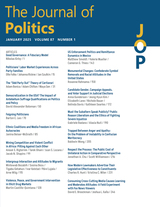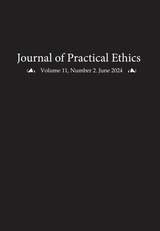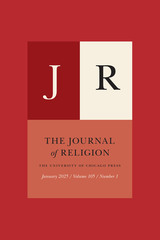6 start with O start with O

George W. Bush had planned to swear his oath of office with his hand on the Masonic Bible used by both his father and George Washington, however, due to the inclement weather, a family Bible was substituted. Almost immediately on taking office, President Bush made passage of "faith-based initiatives"—the government funding of religious charitable groups—a legislative priority. However, "inclement" weather storm-tossed his hopes for faith-based initiatives as well.
What happened? Why did these initiatives, which began with such vigor and support from a popular president, fail? And what does this say about the future role of religious faith in American public life? Amy Black, Douglas Koopman, and David Ryden—all prominent political scientists—utilize a framework that takes the issue through all three branches of government and analyzes it through three very specific lenses: a public policy lens, a political party lens, and a lens of religion in the public square.
Drawing on dozens of interviews with key figures in Washington, the authors tell a compelling story, revealing the evolution of the Bush faith-based strategy from his campaign for the presidency through congressional votes to the present. They show how political rhetoric, infighting, and poor communication shipwrecked Bush's efforts to fundamentally alter the way government might conduct social services. The authors demonstrate the lessons learned, and propose a more fruitful, effective way to go about such initiatives in the future.
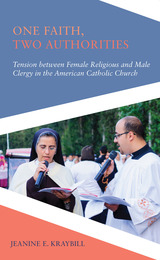
While female religious have grown to possess a sense of personal authority in issues impacting the laity, and have come to engage in social-issue-oriented activities, religious institutions have traditionally viewed men as the decision-makers. One Faith, Two Authorities examines the tensions of policy and authority within the gendered nature of the Catholic Church.
Jeanine Kraybilllooks at the influence of Catholic elites—specifically within the U.S. Conference of Catholic Bishops and the Leadership Conference of Women Religious—and their opinions on public policy and relevant gender dynamics with regard to healthcare, homosexuality, immigration, and other issues. She considers the female religious’ inclusive positions as well as their opposition to ACA for bills that would be rooted in institutional positions on procreation, contraception, or abortion. Kraybill also systematically examines the claims of the 2012 Doctrinal Assessment against the Leadership Conference of Women Religious.
One Faith, Two Authorities considerswhether the sisters and the male clergy are in fact in disagreement about social justice and healthcare issues and/or if women religious have influence.

The roots of conservative Christian skepticism of international politics run deep. In this original work Markku Ruotsila artfully unearths the historical and theological origins of evangelical Christian thought on modern-day international organizations and U.S. foreign policy, particularly in the fierce debates over the first truly international body—the League of Nations.
After describing the rise of the Social Gospel movement that played a vital, foundational role in the movement toward a League of Nations, The Origins of Christian Anti-Internationalism examines the arguments and tactics that the most influential confessional Christian congregations in the United States—dispensational millenialists, Calvinists, Lutherans, and, to a lesser extent, Methodists, Episcopalians, and Christian Restorationists—used to undermine domestic support for the proposed international body. Ruotsila recounts how these groups learned to co-opt less religious-minded politicians and organizations that were likewise opposed to the very concept of international multilateralism. In closely analyzing how the evangelical movement successfully harnessed political activism to sway U.S. foreign policy, he traces a direct path from the successful battle against the League to the fundamentalist-modernist clashes of the 1920s and the present-day debate over America's role in the world.
This exploration of why the United States ultimately rejected the League of Nations offers a lucid interpretation of the significant role that religion plays in U.S. policymaking both at home and abroad. Ruotsila's analysis will be of interest to scholars and practitioners of theology, religious studies, religion and politics, international relations, domestic policy, and U.S. and world history.
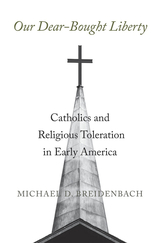
How early American Catholics justified secularism and overcame suspicions of disloyalty, transforming ideas of religious liberty in the process.
In colonial America, Catholics were presumed dangerous until proven loyal. Yet Catholics went on to sign the Declaration of Independence and helped to finalize the First Amendment to the Constitution. What explains this remarkable transformation? Michael Breidenbach shows how Catholic leaders emphasized their church’s own traditions—rather than Enlightenment liberalism—to secure the religious liberty that enabled their incorporation in American life.
Catholics responded to charges of disloyalty by denying papal infallibility and the pope’s authority to intervene in civil affairs. Rome staunchly rejected such dissent, but reform-minded Catholics justified their stance by looking to conciliarism, an intellectual tradition rooted in medieval Catholic thought yet compatible with a republican view of temporal independence and church–state separation. Drawing on new archival material, Breidenbach finds that early American Catholic leaders, including Maryland founder Cecil Calvert and members of the prominent Carroll family, relied on the conciliarist tradition to help institute religious toleration, including the Maryland Toleration Act of 1649.
The critical role of Catholics in establishing American church–state separation enjoins us to revise not only our sense of who the American founders were, but also our understanding of the sources of secularism. Church–state separation in America, generally understood as the product of a Protestant-driven Enlightenment, was in key respects derived from Catholic thinking. Our Dear-Bought Liberty therefore offers a dramatic departure from received wisdom, suggesting that religious liberty in America was not bestowed by liberal consensus but partly defined through the ingenuity of a persecuted minority.

Joel Kovel argues that the inner contradictions of Zionism have led Israel to a ‘state-sponsored racism’ fully as incorrigible as that of apartheid South Africa and deserving of the same resolution. Only a path toward a single-state secular democracy can provide the justice essential to healing the wounds of the Middle East.
Kovel is well-known writer on the Middle East conflict. This book draws on his detailed knowledge to show that Zionism and democracy are essentially incompatible. He offers a thoughtful account of the emergence and disintegration of Zionism that integrates psychological, political, cultural, economic, and ideological levels.
Ultimately, Kovel argues, a two-state solution is essentially hopeless as it concedes too much to the regressive forces of nationalism, wherein lie the roots of continued conflict.
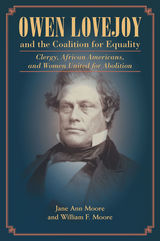
Owen Lovejoy and the Coalition for Equality examines how these three distinct groups merged their agendas into a single antislavery, religious, political campaign for equality with Lovejoy at the helm. Combining scholarly biography, historiography, and primary source material, Jane Ann Moore and William F. Moore demonstrate Lovejoy's crucial role in nineteenth-century politics, the rise of antislavery sentiment in religious spaces, and the emerging congressional commitment to end slavery. Their compelling account explores how the immorality of slavery became a touchstone of political and religious action in the United States through the efforts of a synergetic coalition led by an essential abolitionist figure.
READERS
Browse our collection.
PUBLISHERS
See BiblioVault's publisher services.
STUDENT SERVICES
Files for college accessibility offices.
UChicago Accessibility Resources
home | accessibility | search | about | contact us
BiblioVault ® 2001 - 2025
The University of Chicago Press


